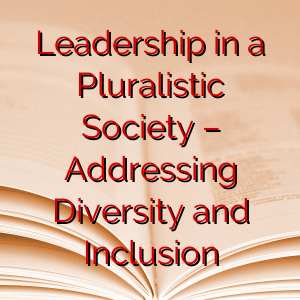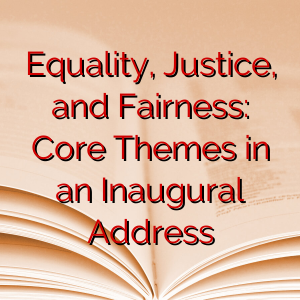Religion, Secularism, and National Leadership: Balancing Act
Religion, with its profound influence on individuals and societies, often plays a central role in the fabric of diverse nations. When taking the helm as the leader of such a nation, one must navigate the delicate balance between religious and secular perspectives. Crafting an inaugural address that acknowledges and respects the diverse religious beliefs while upholding principles of secularism is a challenging but vital task. This essay delves into the complexities of addressing religious and secular perspectives in an inaugural address and offers strategies for promoting harmony and respect in a diverse nation.
class=”text-body font-regular text-gray-800 leading-[24px] pt-[9px] pb-[2px]” dir=”ltr”>The Significance of Religious and Secular Diversity
To comprehend the intricacies of addressing religious and secular perspectives, it is crucial to acknowledge the significance of religious diversity and the principle of secularism.
- Religious Diversity: Our diverse nation is home to a wide array of religious beliefs and practices, from Christianity, Islam, and Judaism to Hinduism, Buddhism, and various other faiths. Religious diversity is a testament to the freedom of religion, an essential democratic principle.
- Secularism: The principle of secularism is enshrined in our constitution, emphasizing the separation of religion from the government. It ensures that individuals have the right to practice their faith or choose not to do so, without discrimination or favoritism.
Challenges of Addressing Religious and Secular Perspectives
The challenges of addressing religious and secular perspectives in an inaugural address are multifaceted:
- Respecting Religious Freedom: A leader must respect the religious freedom of all citizens while upholding the secular principles of government.
- Avoiding Favoritism: Balancing the recognition of diverse religious traditions without showing favoritism toward any particular faith is a delicate task.
- Promoting Unity: An inaugural address must emphasize shared values and principles that unite citizens, irrespective of their religious or secular beliefs.
- Managing Conflicts: Religion can sometimes be a source of division and conflict. A leader must navigate these potential conflicts with sensitivity and diplomacy.
Strategies for Promoting Harmony and Respect
To address these challenges and promote harmony and respect in your inaugural address, consider the following strategies:
- Respect for All Religions: Begin your inaugural address by acknowledging and respecting the religious diversity within the nation. Emphasize the importance of religious freedom and the right to practice one’s faith.
- Uphold Secular Principles: Reiterate your commitment to secularism and the separation of religion from government. Make it clear that government policies and actions will be inclusive of all citizens, regardless of their religious beliefs.
- Shared Values: Emphasize the shared values and principles that unite the nation, such as justice, equality, compassion, and the pursuit of the common good. Highlight the common ground that transcends religious and secular divides.
- Interfaith Dialogue: Promote interfaith dialogue and cooperation to foster understanding and respect among different religious communities. Encourage religious leaders to engage in meaningful conversations and collaborations.
- Religious Inclusivity: Ensure that religious inclusivity is practiced in government activities, including public ceremonies, observance of religious holidays, and accommodations for religious practices.
- Educational Initiatives: Support educational programs that teach the history and significance of various religious traditions, promoting cultural and religious literacy.
- Conflict Resolution Mechanisms: Develop effective conflict resolution mechanisms to address disputes that may arise from religious or secular differences.
- Emphasize Social Inclusion: Advocate for social inclusion and diversity in all aspects of society, including government, businesses, and educational institutions.
- Tolerance and Respect: Encourage a culture of tolerance and respect for differing beliefs, whether religious or secular. Discourage discrimination or prejudice based on religion or the absence of it.
- Lead by Example: As the leader, set an example by respecting religious diversity and secular principles in your own actions and rhetoric. Avoid making divisive or discriminatory statements.
Conclusion
In conclusion, addressing religious and secular perspectives in an inaugural address is a complex but essential task for leaders of diverse nations. By respecting religious freedom, upholding secular principles, and emphasizing shared values, a leader can promote harmony and respect among citizens of different faiths and worldviews. This approach fosters a more inclusive and harmonious society where religious and secular diversity is celebrated and respected.

Hello! Welcome to my Blog StudyParagraphs.co. My name is Angelina. I am a college professor. I love reading writing for kids students. This blog is full with valuable knowledge for all class students. Thank you for reading my articles.




